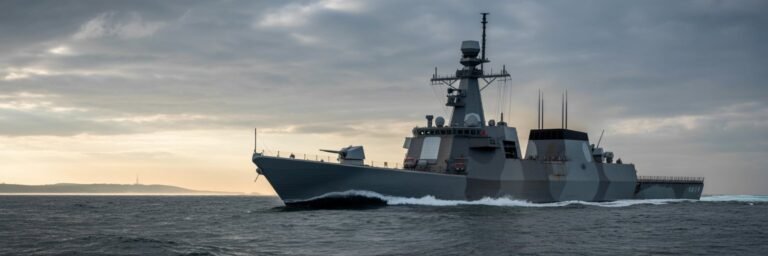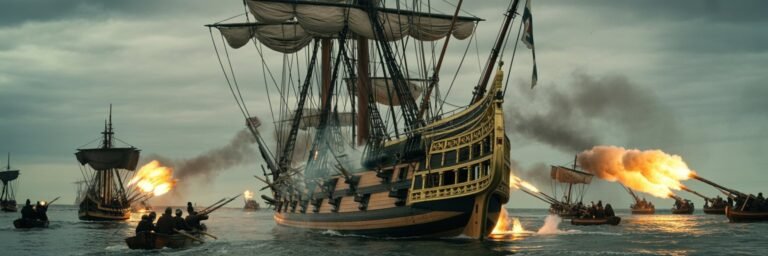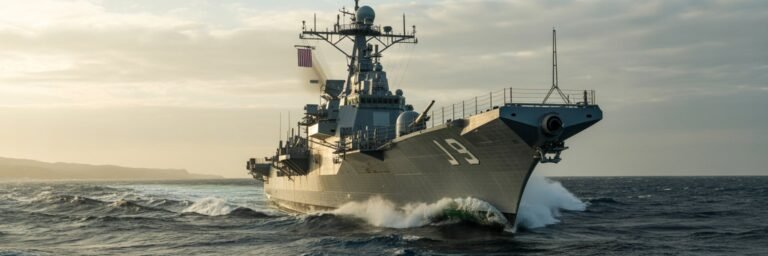INTRODUCTION
When thinking about the forces that have shaped global politics, we cannot overlook the influence of naval warfare. Whether we consider the annals of ancient Greece or the unfolding narratives of modern conflicts, the control of the seas has repeatedly altered the course of history. Possessing a potent navy has allowed powers to project influence abroad and sustain control at home, thereby setting the stage for political, social, and economic change. Uncovering the threads of this intricate tapestry provides insight into the many ways naval warfare has contributed to the global political landscape we navigate today.
HISTORICAL BACKGROUND
The importance of naval power in shaping global politics can be traced back to the dawn of civilization. The maritime capabilities of Phoenicians and Greeks allowed them to establish expansive trade networks and colonies across the Mediterranean, fundamentally altering the political dynamics of the era. The Battle of Salamis in 480 BC, revealing the military might of Athenian naval power, significantly shifted the tides of the Greco-Persian Wars and the political landscape of ancient Greece.
During the Roman Empire, famed for their legions, the Romans also understood the importance of naval power. They battled and defeated the powerful Carthaginian navy in the First Punic War (264-241 BC), a pivotal step towards Rome’s ultimate domination of the Mediterranean.
Similarly, in the Age of Exploration, maritime capabilities formed the backbone of the empires of Spain, Portugal, Britain, and the Netherlands – their naval strength became a crucial determinant of their global political influence.
THEORIES AND INTERPRETATIONS
The notion that naval warfare influences global politics extensively is supported by various theories. Alfred Thayer Mahan’s work, “The Influence of Sea Power Upon History”, encapsulates the first comprehensive analysis of this phenomenon. In his view, naval power not only enabled nations to wage war more effectively but also allowed them to exert economic dominance, secure overseas territories, and expand their influence.
Mahan’s theories heavily influenced the expansion of navies worldwide, leading to the naval arms race before World War I. His arguments were used as a justification for increased naval build-up by both the United States and Germany, escalating tensions and resulting in the infamous naval blockade of Germany.
Another perspective, called the “Cornell School” theory, acknowledges the military value of navies but also casts a spotlight on the crucial role of navies in colonization, resource ownership, and political influence.
MYSTERIES AND CONTROVERSIES
Despite the comprehensive analysis provided by established theories, questions remain regarding the extent of the influence naval warfare has on global politics. For example, the debate over whether naval power was a primary or secondary factor in the ascent of Western powers during the Age of Exploration is far from resolved. There is also controversy over the assertion that naval strength was a decisive element in the outcome of both World Wars.
Noted historian N.A.M Roger makes a compelling argument against the unilateral focus on naval power throughout history. In “The Command of the Ocean” he posits that British naval dominance was the result, not the cause, of Britain’s economic prosperity and political stability.
SYMBOLISM AND CULTURAL SIGNIFICANCE
Naval warfare has had profound cultural significance, forging national identities and becoming embedded in cultural memory. The Armada, Trafalgar, and Jutland’s enduring symbolism highlight the role of naval warfare in shaping the collective identities of Spain, Britain, and Germany respectively.
In Britain, the “Nelson touch” symbolizes courage, resilience, and leadership. In America, “Remember Pearl Harbor” encapsulates feelings of nationalism and purpose. Navies coupled with maritime traditions have helped foster national identity, patriotism, and unity.
MODERN INVESTIGATIONS
Modern day scholars continue to investigate the cultural, economic, and political effects of naval warfare. Some notable works include Andrew Lambert’s “Seapower States,” which refutes Mahan’s theory, arguing that it isn’t military supremacy that makes seapower but seapower that creates military capability.
Furthermore, international relations experts delve into the maritime strategies of contemporary powers like China, its Belt and Road Initiative, and increasing expansion in the South China Sea echoing Mahan’s thoughts while considering the impacts on global politics via the lens of “Soft Power”.
LEGACY AND CONCLUSION
Naval warfare’s legacy is indeed ingrained in our modern world. The balance of power between nations continues to be determined, in part, by their control of the seas. The critical role of navies in contemporary conflict zones, like the Persian Gulf and South China Sea, highlights their enduring significance.
In conclusion, naval warfare has been instrumental in shaping the globe’s political landscape. From the mighty fleets of the Roman and British Empires to the rising blue water navy of modern China, the mastery of the sea remains an essential aspect of global politics. Understanding the complexity and evolution of this dynamic helps us better comprehend how power has been and continues to be projected across our planet’s vast oceans.




